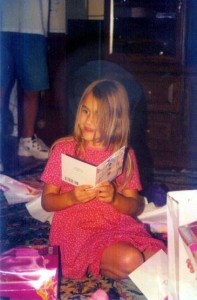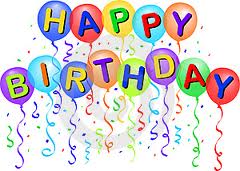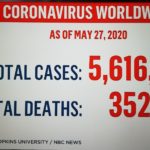By Emily Knott
I took a photography class during my sophomore year of high school. For each assignment, I borrowed a thirty-five millimeter camera from the school to shoot a reel of black and white film. I couldn’t drive, so most of the photographs were taken around my house—close shots of porch rails, window sills, patterns of light across the wooden living room floor. My teacher never said that these photographs were boring, directionless, but I never made above a low A on any assignment, which was about as low as the photography class’s grading scale went.
For one assignment, I set up the camera tripod in the cul-de-sac and tried to capture my house in the frame, but I couldn’t find the right angle—the house was crooked in each shot, the lines slightly skewed. It wouldn’t have made a nice photograph. The violet irises by the door had wilted, the bushes were nothing more than twigs, the yard was plagued by clover and dandelions. I was always embarrassed to have a friend drop me off at home.
I remembered the first time I saw the house. I was almost three years old when my family moved from Chattanooga, Tennessee, to Columbia, South Carolina. Chattanooga was like a vague dream in my mind, barely real, the memories of memories nothing more than wisps of images. I remembered only a handful of scenes from the move: my bed in the center of an empty room. Our clothes dryer in a hallway, its silvery tube still attached to the wall. Aquariums like large, heavy bricks on the minivan floor—my father said they wouldn’t spill. Hours later, we rounded a bend in the road and my mother pointed and said, “Look, that’s our new house.” I stood in the doorway of an empty room, my Sunday-school shoes in front of me, spread my arms, and said, “My new room,” until my brothers pointed out that my actual new room was on the other side of the hall.
There is always the possibility that none of this happened. I’ve read that sometimes people invent memories, especially if they’ve heard a story often enough to remember details, or seen photographs of a particular person or place. I imagine that my eyes are like a camera lens set to record every moment of my life, endless reels of images that my mind tries to store. The world’s most disorganized library. Things get lost, broken, thrown away—synapses disconnect, fall into disuse. It’s like our home videos from Chattanooga—parts of them are taped over with Star Trek, The Wizard of Oz, other bits of television that my father never watches. It’s possible that I’ve taken these fragmented home videos and tried to build memories around them.
We were supposed to live in that house for a year, maybe two, while my father adjusted to his new job. Plans changed. Twelve years later, staring at the house through the camera lens, I still wasn’t sure why. I collapsed the camera tripod and decided to try the backyard, with the creek and deck and rusted swing set. I lowered the tripod’s legs into creek shallows and took photographs of exposed tree roots that overhung the bank. I tried to adjust the f-stop and aperture, to express the water’s motion in a balance between focus and blur.
My sister Hannah, a year younger than me, fell into the creek once. She was five, maybe six. Earlier that day, our mother had given us permission to play down by the creek for the first time, but we waited until she left for work to go outside. We were too scared to approach the creek waters, so we dug holes in the sand with twigs and pulled rocks from the ground. Tree shadows around us stretched and blended into each other—it would be dark soon, and I knew that we would have to go inside. Hannah stood up and looked down into the creek and pointed at what looked like a broken tricycle seat, made of white plastic and green metal bars.
“Look,” she said. “What’s that?” She ran toward it before I could answer. I followed her, maybe—that part’s vague, the mental images blurry and faded. I remember the next moment, though. Hannah tripped on a rock and fell into the water, face down. Her clothes floated up around her like a parachute until the water pressed the air out of them and out of her lungs, curls of her hair spread across the surface of the water as though the creek was made of glass, and displaced water sent little tsunamis in every direction.
When I brought Hannah back to the house, dripping and shivering and crying, our father knew immediately what had happened. He yelled at us, said, This is why you don’t go down to the creek, get out of the house, you’re making a mess. But I held Hannah’s hand and led her up the stairs, helped peel off her soaked clothes and ran hot bath water for her. We were both afraid. More than anything, I wished that my mother was home. I remember thinking that I shouldn’t have to take care of my sister, that seven years old was too young to be a mother.
I didn’t understand how I could take photographs of the creek if it only brought back memories like this. I couldn’t think about a pointless school assignment when I was surrounded by a collage of experiences and all I wanted was to forget. To move away, let the mental collage get lost in a mental drawer somewhere and gather mental dust until the mental images blur and fade out. Maybe this was why I couldn’t make higher grades in photography class—I tried to take pictures of a place that I only wanted to leave.
Too tired to finish the reel, I turned off my camera. But photography provided a distraction, if I focused on frame and shutter speed and other techniques we learned about in class. I thought about the shaded creek and realized that it was probably too dark anyway. I thought about the shrub swamp on the opposite bank, a wide, flat expanse I’d visited only once—I wasn’t supposed to wander so far from home by myself. I was fifteen, though. I didn’t care.
I went up the creek a little ways, felt cold water roll past my ankles. Small fish approached my toes and then rushed away. I tried to remember the spot where I’d caught minnows several years before.
It happened when I was eleven. I’d left the house after an argument with my father. With nowhere else to go, I stood on the front porch for a while, tried to sit in an old, unstable rocking chair, until I found a wasp nest behind the porch light. I tried to open the front door, to get back inside, but it was locked. I rang the doorbell and watched a wasp crawl up the porch rail. My father opened the door and told me that I wasn’t allowed back inside until I apologized. But I was too stubborn. He shut the door and I turned away and held my breath as though it would keep me from crying.
I ran to the backyard and sat by the creek, where I tried to skip rocks. Each one of them hit the water too hard, even though my father had tried to teach me how to skip rocks. I decided to explore upstream instead, and walked through the creek until I couldn’t see the house anymore. In shallow, still waters, I tried to scoop up minnows with my hands, but they slipped between my fingers—mere slivers of fish, too thin to catch. It was easy for them to get away.
I stayed outside for hours. When I tried the front door again, it was still locked, but something was wrong. The cars were missing from the driveway, and I assumed that my parents had gone out to look for me. They probably remembered the time I’d walked to Kroger at one in the morning after my father told me that I was a bitch—he’d been drinking, I was complaining about math homework, and he was sick of hearing it. I’d slipped through their grasp twice, too easily.
Still locked out of the house, I stretched out in the front yard under a tree and waited for them to come back. When my mother pulled into the driveway ten minutes later, she didn’t know what had happened. My father told her that I’d left because I was mad at him. I told her that he’d locked me out of the house and I’d been in the backyard the entire afternoon, but I’m not sure she believed me. She said that she’d waited in the parking lot of Kroger for ten minutes before she realized that I was still at home.
I didn’t say anything. When she let me back into the house, I went to wash my hands and didn’t stop. I used up the entire soap dispenser, filled the sink with bubbles, rubbed the skin of my hands raw. I was glad that I hadn’t caught any minnows. They wouldn’t have survived if I’d taken them from the creek.
I was too young then to wander far from home. As much as I wanted to leave, there was nowhere else to go. Even as a sophomore in high school, I was afraid of visiting the shrub swamp that could almost be considered a part of the backyard. I thought about this and decided to take the photographs in the swamp. It was hot outside, but I wanted to shoot the entire roll of film so I didn’t have to think about it anymore.
The shrub swamp looked different. Nature had remade itself since I’d last seen it. After soaking in springtime thunderstorms, the water level swelled and left only scattered tips of tall grass above its surface. It was fringed with a thin forest of elms and pines, a haven for cottonmouths and deer and small mammals. I set up the tripod and took photographs—the sky set against a thick curtain of pines, sunlight scattered across water, dead tree branches strewn everywhere. I didn’t know how to capture the essence of this place, where I had no memories.
It seemed empty, unfamiliar. I was alone in the expanse, surrounded by houses. I tried not to imagine water moccasins slipping out of still, clouded waters. Leeches hid in those waters, slouched in the silt and waited for their next victim. I watched each step I took, careful to stay on solid dirt. It took me maybe ten minutes to use up the roll of film.
When I folded up my tripod and turned off the camera, I realized how far I was from home. Distant, unrecognizable shouts seemed too loud, each of them a ghost. Something dangerous. I started to walk back home, but a muskrat tumbled out of the underbrush in front of me. It rolled to its feet like a large rat, slick and greasy and infested with disease. I stood still until it slipped into the water. I ran. The camera hit my knees, brambles cut my legs, and I nearly tripped over several tree roots. I didn’t care, though. I ran toward home. It seemed like I would never make it.
_____________________________________
Emily Knott is a junior at the South Carolina Governor’s School for the Arts and Humanities, where her creative writing teachers (affectionately?) refer to her as “Squirrel Baby.” When Squirrel Baby isn’t writing, she enjoys online window shopping, British television, and listening to strangers’ conversations (her best fiction comes from this kind of “research”). In the future, she hopes to earn an MFA in creative writing, become a published author, and, of course, drink lots and lots of coffee.











